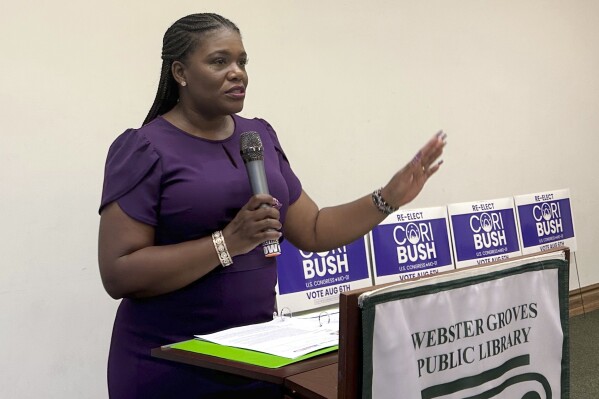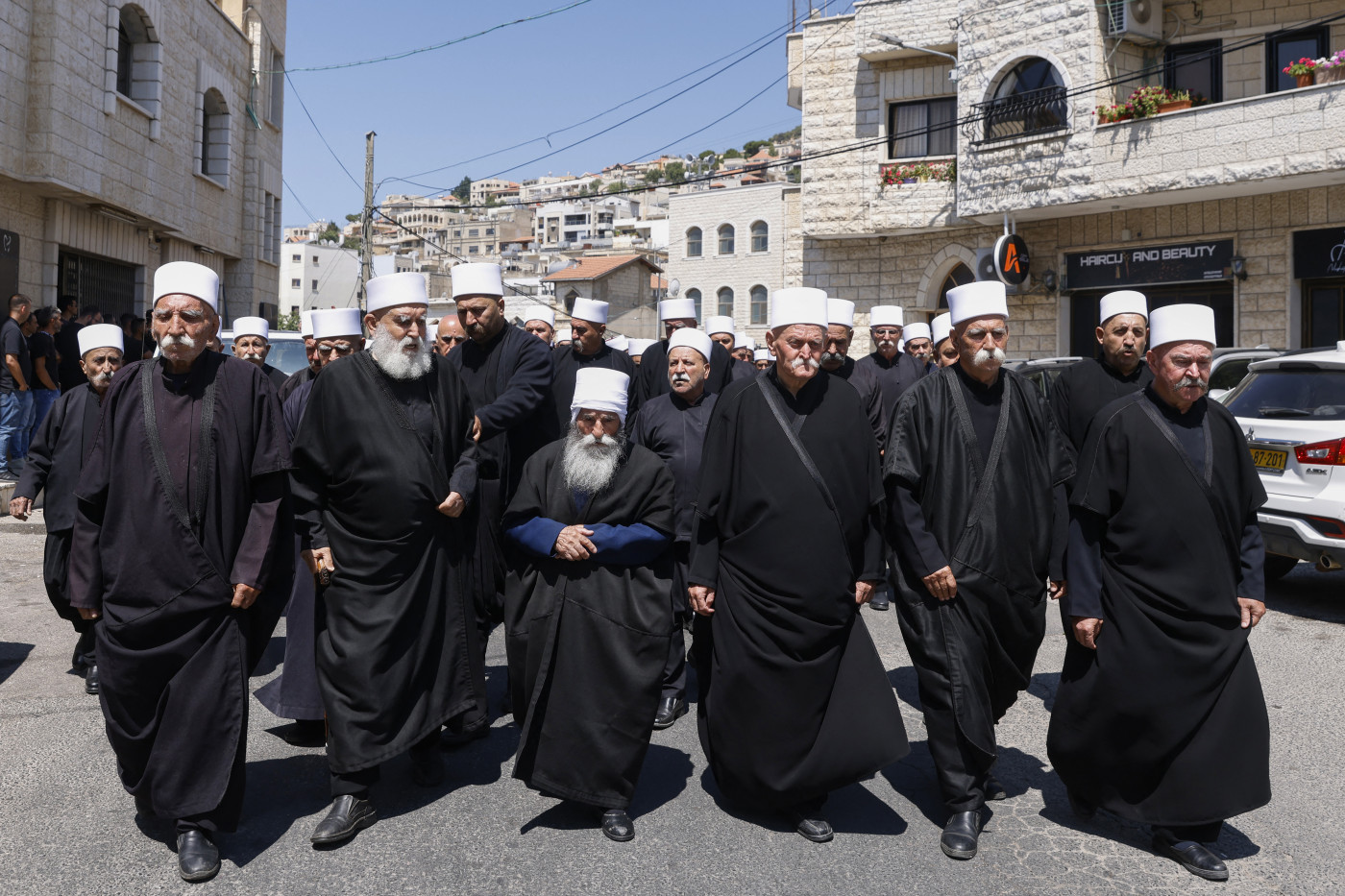Prisoner Swap Marks 'Success' for Putin
Russia's exchange of political prisoners for spies with the West marks the largest swap of its kind since the end of the Cold War, and is being hailed as a "success" for Vladimir Putin.
The U.S. State Department confirmed on Thursday that Russia was handed eight spies and agents, including political assassin Vadim Krasikov, who was convicted in Germany over a 2019 killing in Berlin. Putin previously described him in an interview as a "patriot" who "liquidated a bandit" in "one of the European capitals."
In return, Putin freed 16 prisoners, including The Wall Street Journal reporter Evan Gershkovich, a 32-year-old American citizen who was detained in Russia in March 2023, and U.S. citizen Paul Whelan, a former Marine and computer security official who has been in jail in Russia since 2018.
Maximilian Hess, fellow at the Foreign Policy Research Institute, told Newsweek the swap is a "success" for Putin. And Keir Giles, a Russia expert at Chatham House and author of the book Russia's War on Everybody, told Newsweek that the swap is a confirmation of already seen trends between U.S.-Russia relations. He described the developments as "an all-around success for Russia" that will likely be mimicked in the future.
Aside from Whelan and Gershkovich, Russia released political prisoners Ilya Yashin; Vladimir Kara-Murza; Alsu Kurmasheva; Andrei Pivovarov; Oleg Orlov; Sasha Skochilenko; Lilia Chanysheva; Ksenia Fadeyeva; Rico Krieger; Kevin Lik; Demuri Voronin; Vadim Ostanin; Patrick Schoebel; and German Moyzhes.
Russia was handed in exchange Krasikov; Russian intelligence officers Artem Dultsev and Anna Dultseva; GRU agents Mikhail Mikushin and Pavel Rubtsov; hacker Roman Seleznev; business owner Vladislav Klyushin; and Vadim Konoshchenok, who identified himself as an "FSB colonel" in documents reviewed by Russian investigative site The Insider.
Marc Fogel, an American from Pittsburgh who according to The Washington Post taught overseas at the Anglo-American School of Moscow for 27 years, was not among the released prisoners. He was arrested in August 2021 for marijuana possession and sentenced to 14 years in Russian prison.
"It is inconceivable to us that Russian dissidents would be prioritized over U.S. citizens in a prisoner exchange," Fogel's family said in a statement, according to The New York Times. "Marc has been unjustly detained for far too long and must be prioritized in any swap negotiations with Russia, regardless of his level of notoriety or celebrity."
Hess added: "He [Putin] is securing spies for journalists and opposition activists but it is a dramatic improvement on the December 2022 swap of a celebrity for an arms dealer," referring to the release of American Brittney Griner, an Olympic gold medalist, for Viktor Bout, a Russian arms dealer known as the "Merchant of Death" who had been imprisoned in the U.S. for more than 12 years.
"But securing Russian political prisoners' release—including those without Western citizenship, though some have it for example Vladimir Kara-Murza is a U.K. national as well—allows the West to firmly establish itself on the moral high ground position that it had in such negotiations with the USSR, when there were a number of swaps of Soviet dissidents for spies caught in the West," Hess said.
Giles added: "Russia is quite content to act as a rogue state and use blackmail and extortion and hostage taking to achieve its aims, in this case releasing its murderers, spies and criminals.
"The United States feels it has no option but to comply with this and play along because it does not have a means of responding in kind, which will of course confirm to Russia that this is a successful tactic.
"It will mean that it is still particularly dangerous for people with U.S. passports but other Western passports in general to be in Russia because there's no way of knowing who will be the next hostage to be taken when Russia wants somebody in return."
Krasikov's release will not encourage more Russian hits abroad, he added, due to the Kremlin already not being deterred by anything the West has done from carrying out their campaigns of sabotage and attempted assassinations, across Europe in particular.
"But, of course, it will be a boost for recruitment to those people that do want to carry out hits abroad because it is a demonstration that Russia will take steps to look after its own people even if they have been caught red-handed, convicted and ended up in a foreign jail," Giles said.
Yulia Navalnaya, widow of Russian opposition leader Alexei Navalny, wrote in an X post that numerous Russians "have been saved from Putin's regime."
"It was a huge, long, and very difficult work, with negotiations spanning several years," she wrote. "In February, many different people came together for another attempt to save them all. And now, they are all free. It's a joy to know them all out of captivity. Every released political prisoner is a huge victory and a reason to celebrate. No one should be held hostage by Putin, subjected to torture, or left to die in his prisons."
The exchange marks the biggest prisoner swap since the end of the Cold War, when 23 CIA agents were exchanged for four Soviet spies in 1985. In 2010, another large-scale swap which took place at Vienna International Airport saw the "return to Russia of 10 Russian citizens accused in the U.S., along with the simultaneous transfer to the U.S. of four individuals previously condemned in Russia," Russia's foreign ministry said at the time.
Russian and Ukrainian lawyer Ilya Novikov told independent news outlet Meduza in an interview published late Wednesday that after Bout, Krasikov became "the number one person Putin wants to bring back."
"I don't think Putin particularly likes Krasikov, but this dramatically increases the number of volunteers ready to become his killers.
"Potential killers will understand that even if you kill, get caught and get a life sentence, after a while your homeland will still get you, so there are no risks, everything is great," Novikov added.
Sam Greene, director of Democratic Resilience at the Center for European Policy Analysis (CEPA), said on X, formerly Twitter, that Russia "political prisoners and hostages is not a sign of good will."
"These are not enemy combatants or spies, whose capture is legitimate. None of them should ever have been held in a Russian prison in the first place," he said.
Moscow and Washington had remained tight-lipped on news of a possible exchange this week, as rumors swirled following reports that jailed critics of Putin were removed from prison and taken to an unknown location.
The Kremlin had declined to comment on the matter, while the White House's national security spokesman John Kirby told Puck News that the U.S. "wouldn't want to mess anything up to prevent there from being a positive result."
The Committee to Protect Journalists said it welcomed reports of the release of Gershkovich and U.S. government-funded Radio Free Europe/Radio Liberty editor Kurmasheva. The committee said it "calls on Russia to release other jailed journalists and stop harassing those in exile."
Do you have a tip on a world news story that Newsweek should be covering? Do you have a question about the Russia-Ukraine war? Let us know via worldnews@newsweek.com.
Disclaimer: The copyright of this article belongs to the original author. Reposting this article is solely for the purpose of information dissemination and does not constitute any investment advice. If there is any infringement, please contact us immediately. We will make corrections or deletions as necessary. Thank you.

